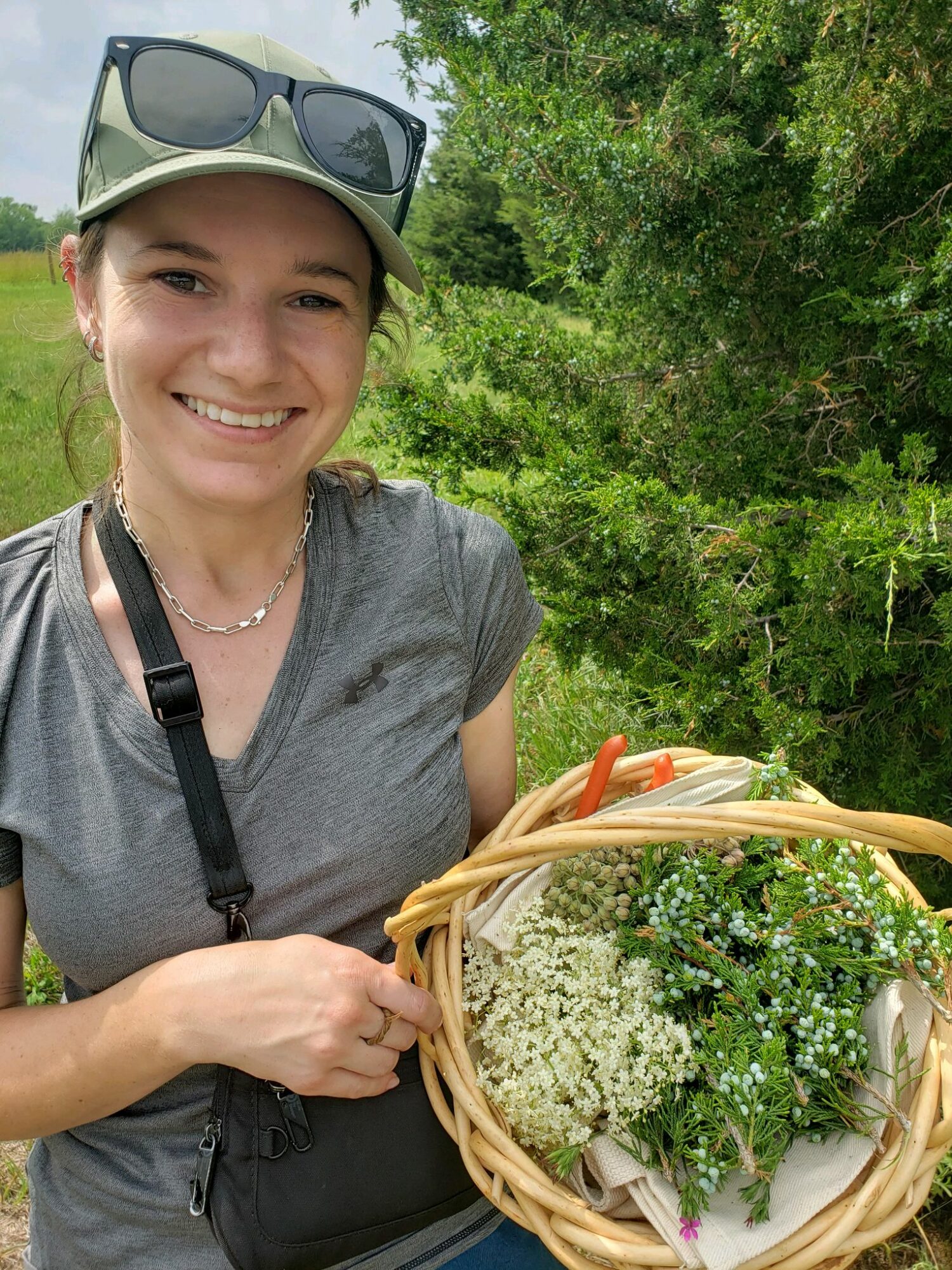

Today we’d like to introduce you to Jess Dort
Hi Jess, can you start by introducing yourself? We’d love to learn more about how you got to where you are today?
My journey began with a deep and unwavering love for nature and a curiosity for the world around me. As a child, you could find me catching frogs, brewing “mud soup”, or digging holes in the backyard. An ever-curious mind led to more education and time spent in the outdoors.
After receiving my bachelors degree in Community and Human Services from Siena Heights University in 2015, I spent close to a decade immersed in community service, from juvenile detention rehabilitation, then to preschool teaching, and finally through family counseling. On the weekends, or a long lunch break, I would escape to the woods, never believing that it could be more than that — a temporary escape. A combination of weekend hiking, amateur nature photography, and a loving nudge from someone close to me culminated in finding the science and art of foraging, wildcrafting, and ancestral skills. Little did I know that this new “hobby” would catapult me on a path that has changed my life, and the lives of those in my community.
As an avid forager, I’ve now spent countless hours exploring forests, meadows, and wild landscapes, seeking out treasures of the natural world, hidden only to those who refuse to look for them. My path has also been shared, and at some points guided, by an inviting network of foragers and teachers who have encouraged, shared skills, and opened my eyes to the community of people who already live a lifestyle in connection with their land.
In 2024, Wild Element was created from this foundation. I have found that my connection to Michigan’s natural plants and wildlife is more than the hobby it began as. And the beliefs that set me on a path toward community service still thrive, just channeled toward a goal that can build relationships not only within our community, but also between our community and the Earth. Now, as a business owner and educator, I aim to share the wonders that have been shared with me and help others connect and strengthen their relationship with the beauty of the great outdoors.
Would you say it’s been a smooth road, and if not what are some of the biggest challenges you’ve faced along the way?
I believe in the power of nature to heal, inspire, and enrich our lives. But just like nature, the path to business ownership has had its share of twists, thorns, and forks in the path. Some of these challenges have come from within — the invasive thoughts of inferiority or insecurity can be difficult to keep from sprouting again and again.
Some of them come from outside of my control — a significant challenge that I continue to face on this path has been finding space for foragers in today’s society. Anti-foraging laws date back to colonial and Civil War eras in which they were used to force Native tribes off lands desired by European settlers and prevent newly freed slaves from providing for themselves or their families. While some may argue today that allowing foraging (the harvesting of wild plants or plant parts, most often for food) would decimate local and state parks of all greenery and wildlife, in reality, there are many ways to sustainably forage from the land without negatively impacting year-to-year growth. And if we all decided to get on board with this, green spaces in parks could be converted to foraging spaces that would provide for the neighborhood, and there would be plenty to go around. There is also data to suggest that ethical and sustainable foraging and stewardship practices can increase populations of target plants, even in ramps (Allium tricoccum, a wild onion variety that is notoriously difficult to seed and slow to grow, https://www.foragersharvest.com/rampresearch.html). Overcoming the challenge of stigma against the practice of foraging (from illegal in some areas to simply judged as “weird” in others) has been and will continue to be a focus in this endeavor.
When facing these challenges, either internal or external, there is a natural balance to be found. It’s something helpful to know if you’re exposed to poison ivy, but also in life. Nature finds a balance. It just does. This balance is demonstrated in the likelihood of finding jewelweed (a natural remedy for poison ivy rash) in the same ecosystem in which the poisonous plant is found. Similarly, when exposed to challenges in my path, I have tried to find the balance again. Wild Element is the outcome of finding balance, or rather, creating a more balanced world both for myself and for my community, and for the piece of Earth on which that community depends.
We’ve been impressed with Wild Element, but for folks who might not be as familiar, what can you share with them about what you do and what sets you apart from others?
In just a couple of generations, we have lost touch with the centuries of familial and cultural knowledge that connected people to the land, plants, and ecosystems around them. Michigan is a prime location for hundreds of beneficial plants that grow naturally, without the need for high prices of transportation and processing. Wild Element aims to connect people with these roots — figuratively and literally — to “bring a little wild to your every day.”
By guiding inclusive outdoor experiences aimed at inspiring and teaching skills like plant identification, wild food processing and preservation, and wild crafting, we can reclaim these skills that have been lost. Through custom services, Wild Element can provide identification of wild plants on a private property, adding cooperative planning for how to foster and utilize these plants and enrich and sustain the ecosystem for years to come. Wild Element also brings people closer to native plants by providing products foraged from Michigan’s bountiful landscape. Wild Element operates with the belief that by reconnecting people with the land beneath their feet, we can not only reclaim historic knowledge, but we will also be more likely to preserve and sustain the outdoor spaces that sustain us.
So, before we go, how can our readers or others connect or collaborate with you? How can they support you?
Collaboration is welcome, and as a small business, Wild Element has the flexibility to provide custom services and create new products or events with collaborators. If you would rather support and let Wild Element take care of the details, that’s okay, too. Wild Element is currently looking to work with private landowners who have 10+ acres of wooded and/or natural land for event partnership for the 2025 season. Anyone interested in supporting Wild Element’s mission can do so by sharing the website, social media pages and events. Owner/educator Jess Dort can be contacted via call/text at (517) 774-9335 or by email to wildelementllc@gmail.com.
Pricing:
- Private Wildcrafting Parties: gather some friends and let Wild Element come to you and bring materials to learn to make a basket, infuse a skincare balm, or other wildcrafting skill; starts at $100
- Custom Plant ID and Consultation: Wild Element can help you identify wild plants on your property for easy harvest, learn processing and preservation methods, and will provide consultation for continued care, 1 hour appointment; starts at $45
- Plant Walks: foray into the woods with Wild Element and identify and discuss native plants in their environment, 3 hours avg. time; $25
- Dried wild herbs and mushrooms: variety depending on season and harvest availability; $8+
Contact Info:
- Website: https://wildelement.company.site
- Instagram: https://www.instagram.com/wildelementllc
- Facebook: https://www.facebook.com/people/Wild-Element/61564929204434/
- Other: https://www.tiktok.com/@wild.element?_t=8rNACmcY2Nq&_r=1





Image Credits
Jay Zatkovich, Casey Czerwinski, Jess Dort











